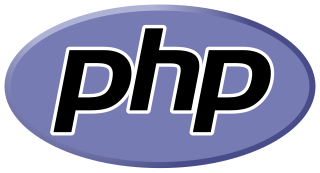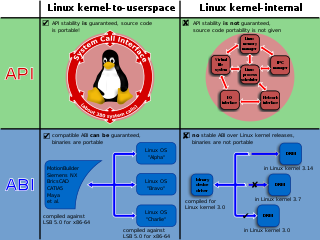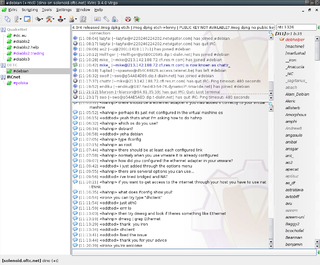Related Research Articles

Blitz BASIC is the programming language dialect of the first Blitz compilers, devised by New Zealand-based developer Mark Sibly. Being derived from BASIC, Blitz syntax was designed to be easy to pick up for beginners first learning to program. The languages are game-programming oriented but are often found general-purpose enough to be used for most types of application. The Blitz language evolved as new products were released, with recent incarnations offering support for more advanced programming techniques such as object-orientation and multithreading. This led to the languages losing their BASIC moniker in later years.

A Java virtual machine (JVM) is a virtual machine that enables a computer to run Java programs as well as programs written in other languages that are also compiled to Java bytecode. The JVM is detailed by a specification that formally describes what is required in a JVM implementation. Having a specification ensures interoperability of Java programs across different implementations so that program authors using the Java Development Kit (JDK) need not worry about idiosyncrasies of the underlying hardware platform.

PHP is a general-purpose scripting language especially suited to web development. It was originally created by Danish-Canadian programmer Rasmus Lerdorf in 1994. The PHP reference implementation is now produced by The PHP Group. PHP originally stood for Personal Home Page, but it now stands for the recursive initialism PHP: Hypertext Preprocessor.

In computer software, an application binary interface (ABI) is an interface between two binary program modules. Often, one of these modules is a library or operating system facility, and the other is a program that is being run by a user.
In computing, cross-platform software is computer software that is implemented on multiple computing platforms. Cross-platform software may be divided into two types; one requires individual building or compilation for each platform that it supports, and the other one can be directly run on any platform without special preparation, e.g., software written in an interpreted language or pre-compiled portable bytecode for which the interpreters or run-time packages are common or standard components of all platforms.
Extensible Application Markup Language is a declarative XML-based language developed by Microsoft that is used for initializing structured values and objects. It is available under Microsoft's Open Specification Promise. The acronym originally stood for Extensible Avalon Markup Language, Avalon being the code-name for Windows Presentation Foundation (WPF).
IronPython is an implementation of the Python programming language targeting the .NET Framework and Mono. Jim Hugunin created the project and actively contributed to it up until Version 1.0 which was released on September 5, 2006. IronPython 2.0 was released on December 10, 2008. After version 1.0 it was maintained by a small team at Microsoft until the 2.7 Beta 1 release. Microsoft abandoned IronPython in late 2010, after which Hugunin left to work at Google. The project is currently maintained by a group of volunteers at GitHub. It is free and open-source software, and can be implemented with Python Tools for Visual Studio, which is a free and open-source extension for Microsoft's Visual Studio IDE.
A user interface markup language is a markup language that renders and describes graphical user interfaces and controls. Many of these markup languages are dialects of XML and are dependent upon a pre-existing scripting language engine, usually a JavaScript engine, for rendering of controls and extra scriptability.

3D GameStudio or 3DGS is a pan 3D computer game development system which allows the users to create 3D games and other virtual reality applications, and publish them royalty-free. It includes a model/terrain editor, a level editor, a script editor/debugger and comes with a big collection of textures, models and artwork, as well as a game template system that allows the creation of basic shooter games or RPGs without programming. For complex games or other applications, either the integrated programming language named Lite-C or an external development language such as Visual C++ or Borland Delphi can be used.

In software development, CMake is cross-platform free and open-source software for build automation, testing, packaging and installation of software by using a compiler-independent method. CMake is not a build system but rather it generates another system's build files. It supports directory hierarchies and applications that depend on multiple libraries. It is used in conjunction with native build environments such as Make, Qt Creator, Ninja, Android Studio, Apple's Xcode, and Microsoft Visual Studio. It has minimal dependencies, requiring only a C++ compiler on its own build system.

Google Web Toolkit, or GWT Web Toolkit, is an open-source set of tools that allows web developers to create and maintain JavaScript front-end applications in Java. Other than a few native libraries, everything is Java source that can be built on any supported platform with the included GWT Ant build files. It is licensed under the Apache License 2.0.
A scripting language or script language is a programming language for a runtime system that automates the execution of tasks that would otherwise be performed individually by a human operator. Scripting languages are usually interpreted at runtime rather than compiled.

RPM Package Manager (RPM) is a free and open-source package management system. The name RPM refers to .rpm file format and the package manager program itself. RPM was intended primarily for Linux distributions; the file format is the baseline package format of the Linux Standard Base.

Uzbl is a discontinued free and open-source minimalist web browser designed for simplicity and adherence to the Unix philosophy. Development began in early 2009 and is still considered in alpha software by the developers. The core component of Uzbl is written in C, but other languages are also used, most notably Python. All parts of the Uzbl project are released as free software under GNU GPL-3.0-only.
QML is a user interface markup language. It is a declarative language for designing user interface–centric applications. Inline JavaScript code handles imperative aspects. It is associated with Qt Quick, the UI creation kit originally developed by Nokia within the Qt framework. Qt Quick is used for mobile applications where touch input, fluid animations and user experience are crucial. QML is also used with Qt3D to describe a 3D scene and a "frame graph" rendering methodology. A QML document describes a hierarchical object tree. QML modules shipped with Qt include primitive graphical building blocks, modeling components, behavioral components, and more complex controls. These elements can be combined to build components ranging in complexity from simple buttons and sliders, to complete internet-enabled programs.

KVIrc is a graphical IRC client for Linux, Unix, Mac OS and Windows. The name is an acronym of K Visual IRC in which the K stands for a dependency to KDE, which became optional from version 2.0.0. The software is based on the Qt framework and its code is released under a modified GNU General Public License.
Dart is a programming language designed for client development, such as for the web and mobile apps. It is developed by Google and can also be used to build server and desktop applications.

Nim is an imperative, general-purpose, multi-paradigm, statically typed, systems, compiled programming language designed and developed by Andreas Rumpf. It is designed to be "efficient, expressive, and elegant", supporting metaprogramming, functional, message passing, procedural, and object-oriented programming styles by providing several features such as compile time code generation, algebraic data types, a foreign function interface (FFI) with C, C++, Objective-C, and JavaScript, and supporting compiling to those same languages.

PureScript is a strongly-typed, purely-functional programming language that compiles to JavaScript. It can be used to develop web applications, server side apps, and also desktop applications with use of Electron. Its syntax is mostly comparable to that of Haskell. In addition, it introduces row polymorphism and extensible records. Also, contrary to Haskell, PureScript adheres to a strict evaluation strategy.
References
- 1 2 "Scriptol Compilers - Stable branch". Freshmeat.net. 2003-04-04. Retrieved 2008-11-03.
- ↑ "Scriptol to C++ or binary compiler". HotScripts.com. 2002-07-04. Retrieved 2008-11-03.